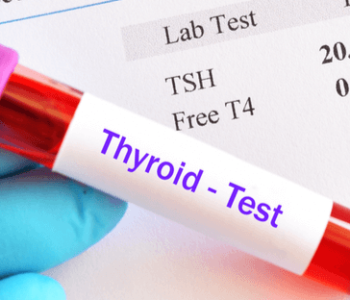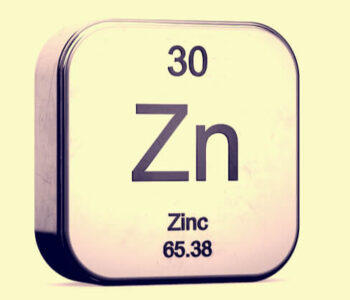In 30 seconds…
The older we get, the more important it is to maintain a balanced diet. Most importantly, that means getting all the vitamins and minerals we need. The essential vitamins for men over 50 include vitamins A, B12, and D, as well as calcium, Omega-3, and magnesium.
Getting Key Nutrients in Your Older Years
A varied and balanced diet is crucial no matter our age. However, as the years progress, it becomes perhaps more important to watch what we eat. Unfortunately, though, it’s us men that tend to struggle looking after ourselves, with males less likely to pay heed to public health messaging, for example – and, sadly, more likely to die early.
As such, men need to make an effort to keep in shape – and to stay as healthy as possible right into our older years. One of the best ways to do this, by the way, is to ensure that your diet includes everything you need it to.
That’s why in this article we’re looking at some of the best vitamins for men over 50. These are the essential nutrients and minerals that our bodies need to be at their best. Taken together, they boost all aspects of men’s health – including immune health, heart health, and your overall wellbeing too.
Top Vitamins for Men Over 50
You may have seen a lot of talk about the correct vitamins to be taking as you age. However, the vitamins that we need over 50 don’t differ too dramatically from those we should be seeking in our younger years.
Nonetheless, as the need to keep our bones, brains, and bodies in good shape becomes ever more pressing, knowing exactly what we should be eating is handy. As such, then, here are the vitamins we need to make sure we consume in our older years.
Vitamin D
Let’s start with vitamin D. It’s often known as the ‘sunshine vitamin’, as, in theory, we should be able to produce adequate quantities of the nutrient when exposed to the sun.
In practice, however, many of us are actually deficient in the vitamin – due to a combination of climate and lifestyle. While half of us globally have insufficient vitamin D levels, studies suggest that people over 50 on average receive about half of what they should.
Vitamin D – including vitamin D2 and vitamin D3 – is hugely beneficial for your bone health, your muscles, and teeth, as it is crucial to the process of calcium absorption. Get it from oily fish, including mackerel and salmon, or from dairy products.
Supplements are actually advised by Public Health England. Watch out, though, because Vitamin D3 doesn’t tend to be vegan.
Vitamin B12
Vitamin B12 helps to maintain the health of your body’s nerves and blood cells. It’s also responsible for the production of DNA, the genetic information stored in each one of your cells. A lack of vitamin B12, meanwhile, positively correlates with cognitive decline in older adults, including with conditions such as dementia. Keeping levels of the vitamin up, then, is key.
Find it in beef liver and clams, as well as in other meat and fish. If you are not a meat-eater, fortified cereals usually contain B vitamins, including vitamin B6 and folic acid.
Vitamin E, Vitamin C, and Vitamin A
Vitamins A, C, and E are often used as supplements for healthy skin. While this can be great, there are many other things it can help with too. Cell growth and tissue repair are both enabled by these vitamins, while they are famously pretty helpful for your immune system as well. If vitamin C is more famous, it is probably vitamin A that is actually more effective for your immune health.
If vitamin E is best sourced from whole food such as nuts, seeds, and wheatgerm, look to your fruit and veg for vitamins C and A. While multivitamin supplements can be helpful here, a balanced diet is always the better option if possible.
Calcium
We mentioned above that vitamin D is an essential nutrient for its role in calcium absorption. However, you’re obviously going to be needing calcium itself for this process too.
Calcium keeps your bones and teeth as strong and healthy as possible. Without it, in older age particularly, you are risking conditions like osteoporosis, in which your bones become more fragile. Furthermore, it enables muscle contraction – including the beating of your heart – and the healthy clotting of your blood is calcium’s responsibility too.
Dairy is perhaps the biggest source of calcium, alongside green leafy vegetables. Again, calcium supplements exist, but should only be taken if for whatever reason you cannot source it from your diet.
Magnesium
Perhaps surprisingly, magnesium is an essential vitamin for maintaining your overall health. That’s because it plays a crucial role in turning the food that we eat into energy that our bodies can use. However, it is also present in hundreds of diverse systems in the body – in maintaining the health of your nerves and muscles, and in regulating blood pressure, for example.
You can find magnesium in leafy green vegetables such as spinach, as well as in wholegrain rice and bread. Again, you should be able to get all of the magnesium you need from your diet. Taking too much, meanwhile, can cause diarrhoea.
Omega-3 Fatty Acids
A few years ago, suddenly everyone was talking about omega-3. While the hype has now died down, it has not lost its power in maintaining your heart and brain health. The fatty acid, which is found in fish oil, should help protect against heart disease – although this has been recently questioned – and the evidence suggests that it should maintain your thinking skills into your older years too.
Oily fish – including mackerel and salmon – are your best sources. Although, if you are not a fish-eater, supplements are available.
Probiotics
Probiotics, like omega-3, are not strictly a vitamin. However, they can have a hugely positive effect on your health – in this case, your digestive health specifically. The ‘good’ bacteria that these contain help to keep your gut in balance – particularly if you are recovering from an illness or if you have irritable bowels.
You can take probiotics as supplements or you can find them in yoghurts. They do not necessarily have all of the positive powers that are claimed for them, however – such as the treatment of eczema.
Multivitamins?
These days, multivitamins are a big industry – and you’ll likely have heard of the major brands, such as Centrum Silver, for older adults. However, even the best multivitamins should really be approached with caution. There is little evidence that they are hugely effective in improving your overall health, and they may actually do you harm, according to some studies.
Generally, the medical advice from the NHS is that you can get the vitamins you need from your diet. And, if you are suffering a deficiency in any specific vitamin, you should be taking supplements of that specific vitamin – not a general mineral supplement.
Use Vitamin Supplements Sensibly
A similar word of caution should be expressed about the variety of health supplements – particularly those that promise to add years to your life. CoQ10, or coenzyme Q10, for example, appears to be all the rage for improving wellness. However, the evidence to support this is very limited.
Importantly, in no cases should you be taking more of vitamin supplements than the recommended daily allowance of the given substance. Vitamin supplementation is the surest way to take too much of a vitamin – which is, in some cases, just as bad as being deficient.
Key Takeaways: Vitamins for Men Aged 50 and Above
Here, we’ve been looking at some of the best vitamins for men over 50. Yet, as you’ll have noticed, it is important that you consume sufficient quantities of these vitamins at any age. Pay close attention to vitamin D, as this is the only vitamin that the UK government actively recommends that you take as a supplement.
As an older man, calcium, magnesium, and omega-3 can be hugely helpful too. However, it is best to source them from your diet. And if taking vitamin supplements, just remember not to take too much.
FAQs
Why are vitamins important?
Vitamins and minerals are the essential nutrients which our bodies need to function properly. Think about your body like a machine; vitamins and minerals are the cogs and gears which keep it running smoothly. Certain vitamins can promote healthier teeth, hair, skin, and bones, whilst others can reduce our risk of dementia.
Do we need more minerals and vitamins as we get older?
It’s not that we necessarily need more vitamins and minerals as we age, it’s simply that as we age, we need to take better care of ourselves. This is in part because our bodies are no longer quite as resilient as they once were, and in part due to the fact that men tend to die younger, perhaps because they are less likely to pay attention to public health messages.
What are the most important vitamins for men over 50?
The best vitamins for over-50s don’t differ much from the vitamins we should all be getting, all throughout life. Having said that, the most important vitamins for men over 50 include vitamins A, B12, C, D, and E, as well as calcium, magnesium, and Omega-3 fatty acids.
Should I take vitamin supplements?
Most of the vitamins and minerals required by men over 50 can be found naturally in foods such as oily fish, leafy greens, seeds, nuts, fruit and veg, liver, fortified cereals, and dairy. Exposure to sunlight also increases our levels of vitamin D. You can, however, turn to supplements if you are finding it difficult to get the vitamins you need in your diet. Just be careful: too much of a vitamin can be as bad for you as too little.












